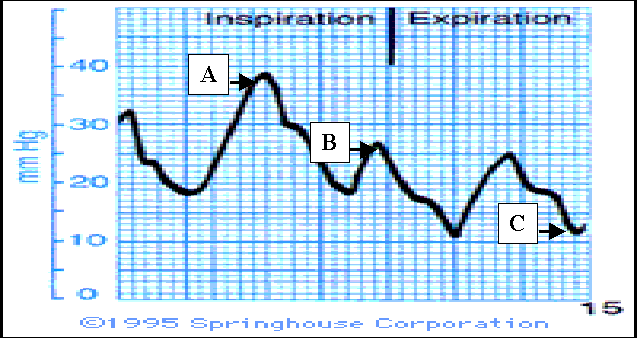What are the three major categories of shock? How might these 3 categories of shock be further separated into two physiologic patterns? Answer
Based upon history and physical, what is the most likely category of shock in this patient? Answer
In addition to identifying the treating the underlying cause, what would be your initial therapeutic intervention to treat the shock? Will your initial therapeutic intervention vary significantly based upon what category of shock is present? What specific order would you write/give the nurse? Answer
What is the patient's mean arterial pressure? Answer
a. What are the normal values for PCWP, cardiac
output (CO), SVR, PVR?
b. What would be your guess as to this patient's PCWP and CO?
c. How is cardiac output determined?
d. What information is gained by measuring the PCWP?
e. Describe situations in which the PCWP may provide misleading
information.
Answer
What would be indications for placement of a SG
catheter? Answer
The following is a sample PCWP tracing:
